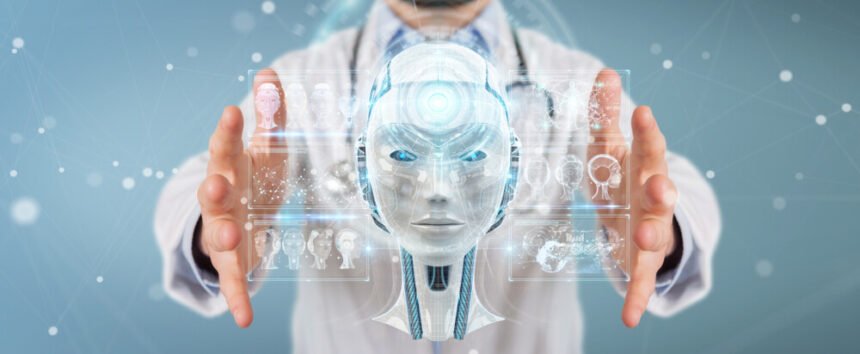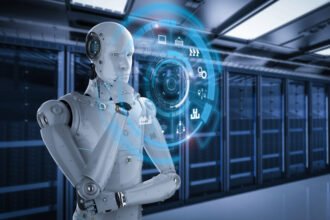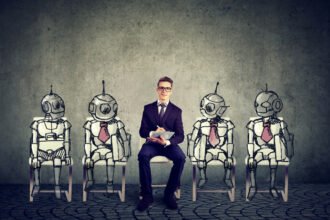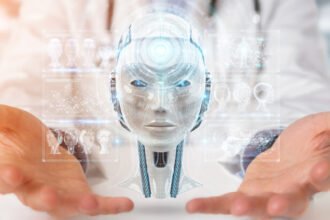The introduction of so many smart digital technologies like home monitoring devices, wearable sensors, robotic implants, and mobile apps in the healthcare industry have not only improved the effectiveness of care for patients but have also decreased readmission rates and improved the overall quality of life for people all over the world. One of the modern technologies redefining various healthcare disciplines, especially cardiology, is artificial intelligence. In fact, according to Healthcareweekly, AI is one of the top technologies every healthcare executive should learn about in 2018. In this article, we will explore the main AI applications in healthcare today hopefully in terms everyone can really get a great understanding of what AI in healthcare really means. For example, Verge Genomics is a drug developing company based in San Francisco which makes use of data solutions to build new therapeutics by levering artificial intelligence to find cures for various diseases. Thus far, the company has raised more than $32 million from investors that are betting on the future of AI in pharma. Over time, I have no doubt that AI will definitely shorten the process of drug development for building quite a number of lifesaving treatments for complex medical conditions like ALS, Parkinson?s disease and Alzheimer?s disease all of which have no cure currently.
But What Does Artificial Intelligence Mean?
Artificial Intelligence creates an opportunity for huge amounts of data to be fed into rules-based algorithms which provide insights to help physicians, researchers and medical technicians in making crucial decisions about patients’ health, developing new drugs and improving operational efficiency across health organizations. There have been concerns that the technology is set to replace doctors and other health workers in the in the industry. For now, though, all indications show that the technology is not aimed at replacing healthcare workers but instead to assist them in making important decisions about patients’ health. At least for now! According to Dr. Simon Stertzer, Professor Emeritus at the Stanford University; artificial intelligence will take a huge part in the future of regenerative medicine. Dr. Stertzer has devoted a huge part of his career to the advancement of cardiovascular interventions. He is the first person to perform the coronary balloon angioplasty in America. But Stertzer, like many other doctors, are betting on the fact that AI?s role for the foreseeable future will be to simply assist physicians in making better decisions. Focus being on AI as an assisting technology. There are three major techniques in artificial intelligence technology that are playing a huge role in the process of creative solutions for healthcare and pharma problems. Let?s look at each of them in more detail.
Machine Learning
Machine Learning is a term that is used to describe diverse AI techniques used to solve complex big data problems by means of identifying the patterns of interaction among specific variables which are fed into complex algorithms. Unlike traditional statistics, Machine Learning focuses on developing automated clinical decision systems to allow doctors to make predictions that are accurate, instead of using simple estimated score systems. There are three major categories of Machine Learning that apply to healthcare and pharma drug discovery and medical management: supervised, unsupervised and reinforcement learning. In supervised learning, a human labeled data set is used by algorithms to predict known and desired outcomes. This type of Machine Learning is good for regression and classification problems. Think of supervised learning as a teacher helping a student add 1 and 3 together then subtract 2. The teacher knows exactly what the answer is and is working with the student (in this case the machine) until it learns on its own that the final answer is 2. Unsupervised learning, on the other hand, identifies novel disease mechanisms, phenotypes or genotypes from hidden patterns in data. In this case, unsupervised learning simply means that no one knows the answer. The teacher knows the problem but doesn?t know the answer. And the student doesn?t know the answer either. With unsupervised learning, the teacher?s job is to make sure the student definitely doesn?t come up with an answer we KNOW to be wrong. One of the best examples of this is Verge Genomic. Verge Genomics uses AI in an attempt to predict, without knowing the answer, if a drug can work or not (or, more precisely, if a drug will fail). An even cooler example of unsupervised learning is a company called HealX which uses AI to discover new drugs for rare diseases. And it does so by trying to create new drugs based on existing drugs. They have a database of 1 billion drugs and their AI is trying to constantly figure out what combination of drugs could lead to a new one for a rare disease (though it doesn?t have the answer!). Reinforcement Learning is a hybrid of the other two types of machine learning with the objective of maximizing algorithm accuracy.
Deep Learning
Deep learning imitates human brain operations via the use of multiple layers of artificial neural networks with the capacity to produce automated predictions from data input. This type of artificial intelligence is very efficient in the recognition of images like image search in Google, Facebook facial recognition, or the little piece of software of all iPhones allowing you to find images which include different people on your phone. It also has strong potentials to be used in cardiovascular imaging with no limitation on its working memory. Its algorithms can enhance the use of artificial cardiovascular imaging in real time and better temporal and spatial resolution, ultimately improving healthcare quality and reducing costs.
Cognitive Computing
Cognitive computing entails the imitation of human thought processes through pattern recognition, natural language processing and machine learning by self-learning systems with the aim to build automated computerized models with the capacity to solve problems even without assistance from humans.
Some Potential Benefits Of Artificial Intelligence For Cardiology:
- It can help make the complex process of decision making in healthcare easier
- It can help enhance the efficiency and speed of cardiovascular imaging.
- It can help make the process of disease diagnoses and prediction faster & more accurate.
There are quite a number of potentials in artificial intelligence for cardiology if adequately implemented. In this article, we just touched on a few examples.
Conclusion
The bottom line is simple. AI in healthcare is a gold-mine. It may not replace humans any time soon (but certainly, it will, at a point in the future!). But for now, AI is helping both pharma and healthcare organizations make better decisions, faster. Any everyone working in healthcare should pay close attention to AI – and even adopt this technology in 2019.











